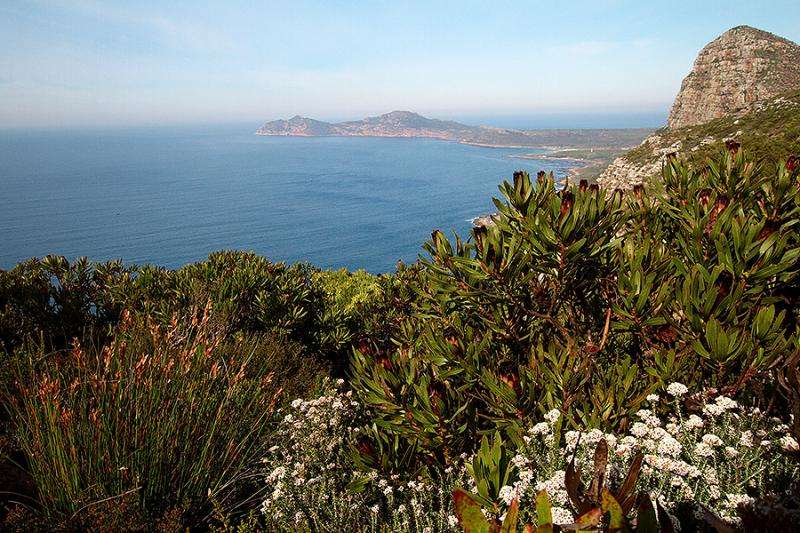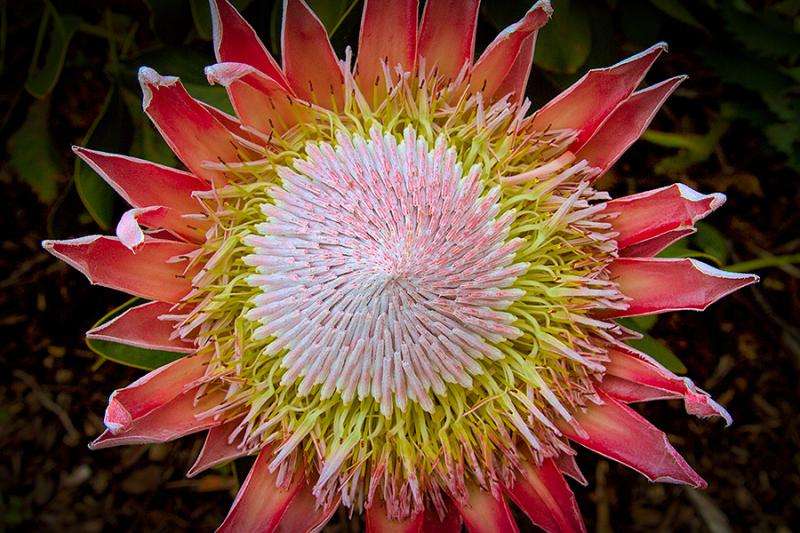The new game of Russian Roulette for fire-prone ecosystems

Increasing prolonged periods of severe hot and dry weather during the first summer after wildfires is inhibiting vegetation recovery and causing loss of plant diversity, according to a new international study on climate change.
The importance of fire in sustaining and even enhancing natural systems has long been known but the cycle of regeneration is being negatively impacted by climate change in some ecosystems, say the researchers.
The findings, published in the Proceedings of the National Academy of Sciences, are a concern for fire-prone ecosystems around the world, including regions of the United States – such as California, along with forest areas of the West and Southeast.
"Fire is a natural process in many ecosystems. But some biodiversity hotspots, like southern Africa, are imperiled due to increasingly common drought-like conditions that limit the ability of plants to regrow after fire," said Adam Wilson, assistant professor of geography in the UB College of Arts of Sciences, a co-author of the study.
In addition to Wilson, the 44-year study of shrubland vegetation in South Africa—one of the most biologically diverse regions of the world—was led by researchers from three other U.S. institutions and four South African institutions.
The researchers found species diversity declined in the study area, the Cape of Good Hope section of the Table Mountain National Park, because of progressively longer periods of consecutive hot and dry days along with the legacy impact of invasive species. The increase in these extreme weather patterns over the past half-century suggests that opportunities for successful regeneration of vegetation will become increasingly rare.
"Climatic variability may continue to provide years sufficiently benign to allow successful recruitment, but many species in ecosystems that regenerate the first year after a fire event – most species in our study – are subject to a form of climactic Russian roulette," said Jasper Slingsby of the University of Cape Town, the study's lead author. "Unfortunately, as climate change intensifies, there are fewer empty chambers in the gun."
The exacerbation of this post-fire mortality by increasingly severe weather extremes is likely to drive major shifts in the composition, structure and fire-prone ecosystems, according to the researchers.
The study represents one of the few examples of climate-drive diversity loss in natural communities. It demonstrates an important interaction between climate change and disturbance by fire that suggests flammable ecosystems may be particularly sensitive to climate change.

More information: Jasper A. Slingsby et al. Intensifying postfire weather and biological invasion drive species loss in a Mediterranean-type biodiversity hotspot, Proceedings of the National Academy of Sciences (2017). DOI: 10.1073/pnas.1619014114
Journal information: Proceedings of the National Academy of Sciences
Provided by University at Buffalo




















